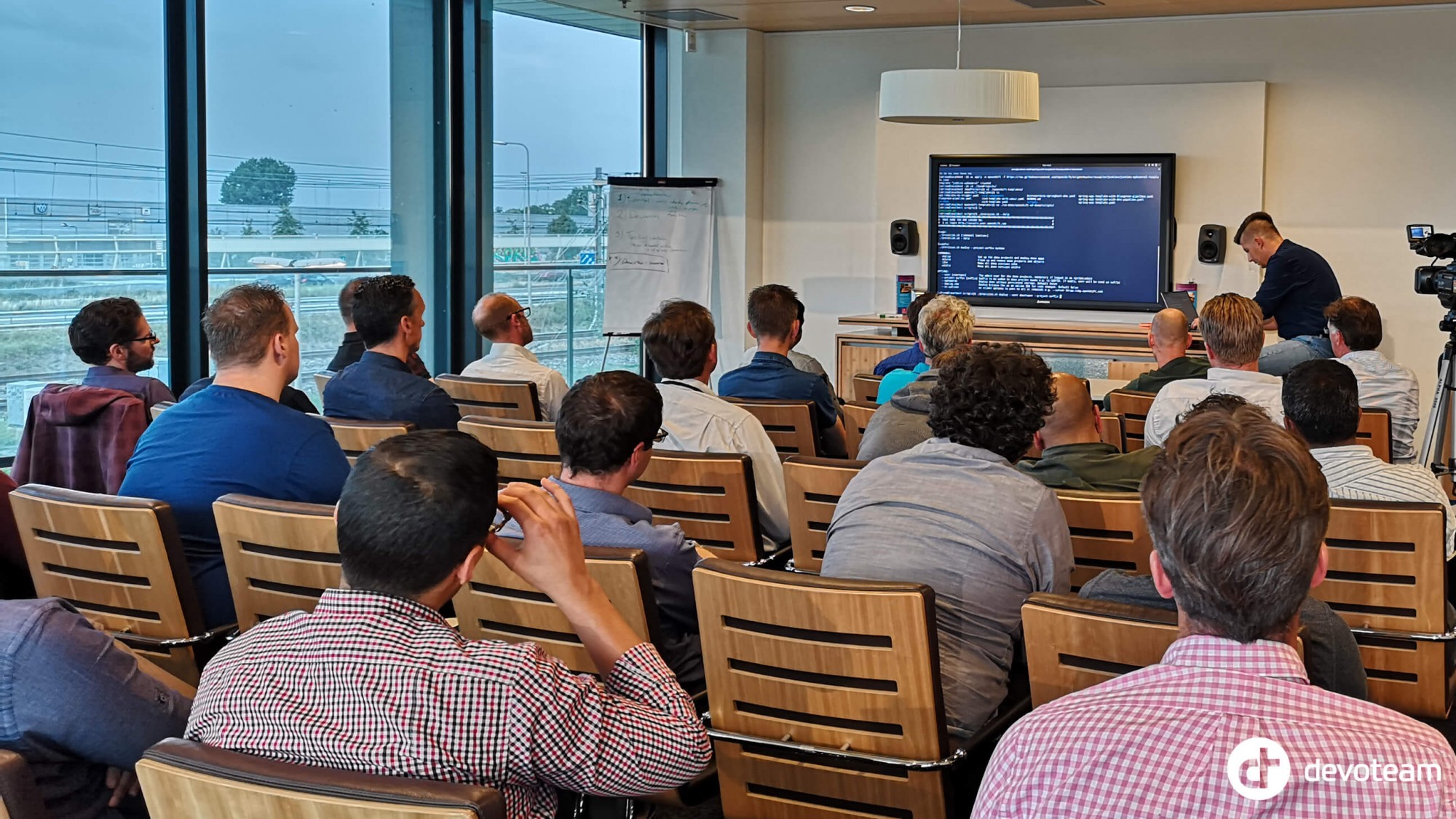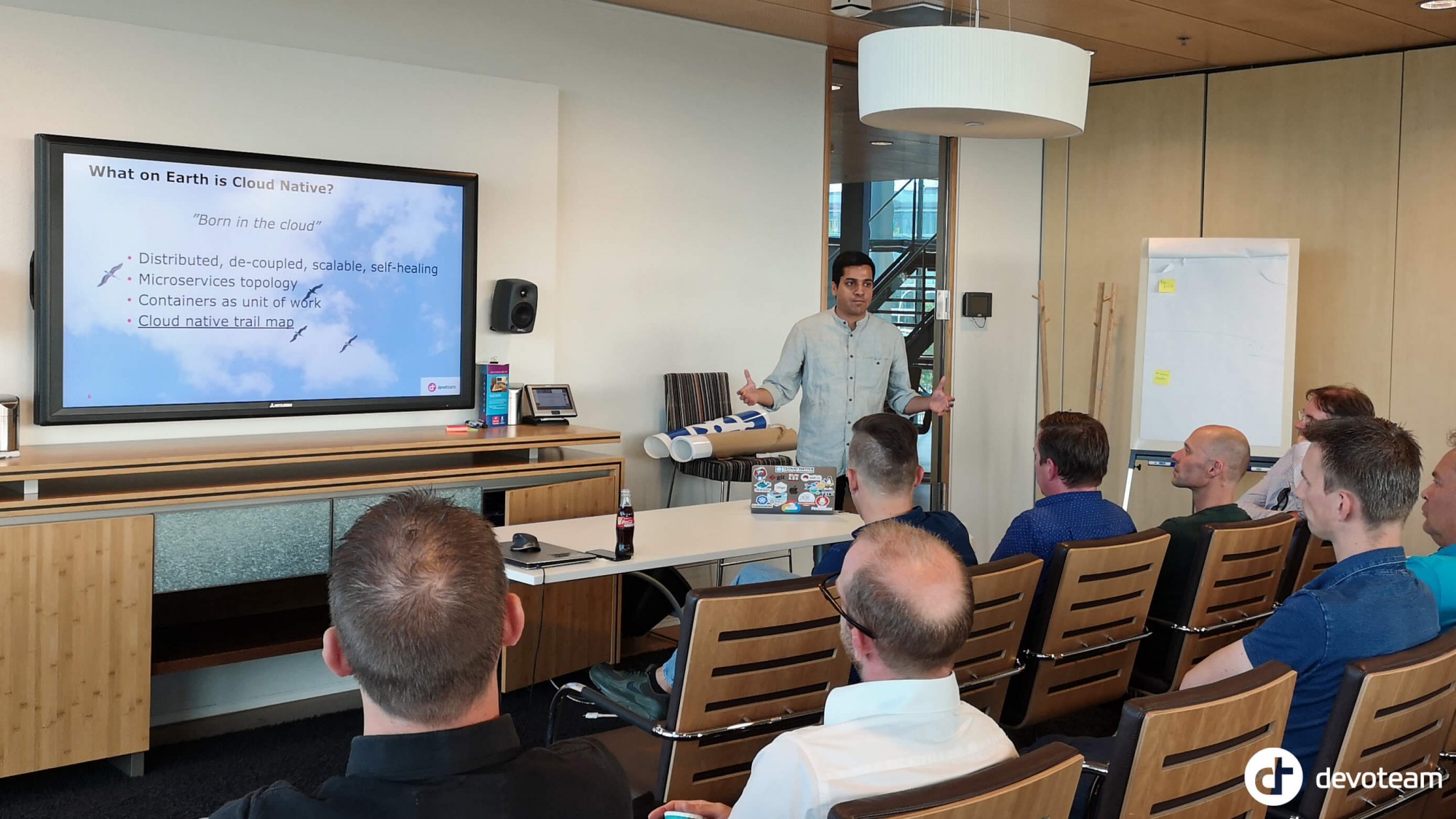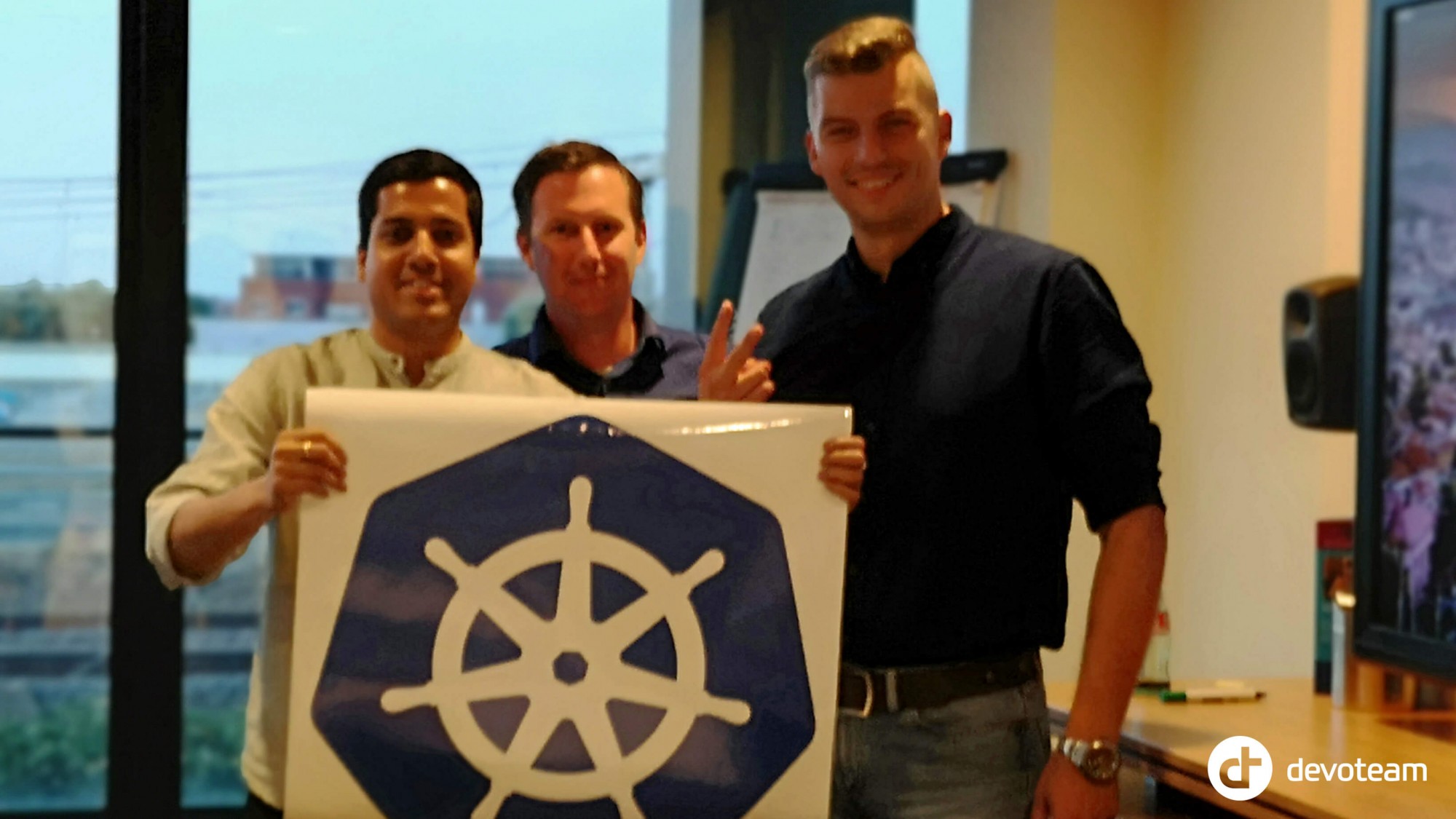Wednesday August 15th I joined the KISS (Knowledge Information Sharing Session): An introduction to Kubernetes & Openshift.
I had heard the terms ‘Kubernetes’ mainly from LinkedIn and Twitter where I follow many monitoring projects and vendors and OpenShift before, but I didn’t really know what it was about and was eager to learn more about the topics.

The information was provided at a good pace and understandable for everyone. As I recently joined Devoteam and I was relatively new to DevOps, I completed the ‘Introduction to DevOps’ training. During the deep dive into Kubernetes with Openshift I was glad to have taken the training. How else would I have known about Cattle vs Pets (explained below), as mentioned by Adnan Drina (Consultant Architecture & Implementation).
In the training ‘Introduction to DevOps‘, Transforming and Improving the Three Ways of DevOps are explained. This is explained in three parts: the First Way, Accelerate Flow, and the concept of Pets vs Cattle.
What is the DevOps concept of Pets vs Cattle?
- Servers as Pets: You name them and when they get sick, you nurse them back to health. They are treated as indispensable as you would treat your dog. They simply can never be down. Examples include mainframes, solitary servers, HA loadbalancers/firewalls (active/active or active/passive), database systems designed as master/slave (active/passive), and so on.
- Servers as Cattle: You number them and when they get sick, you shoot them. Typically Cattle servers are designed for failure. Examples include web server arrays, multi-master datastores such as Cassandra clusters, multiple racks of gear put together in clusters, and just about anything that is load-balanced and multi-master.

My Top 3 takeaways from the Kubernetes KISS
- Its origin: Kubernetes was first introduced and open sourced by Google in June 2014. Cloud Native Computing Foundation (CNCF) was founded in July 2015, and Kubernetes joined CNCF in June 2016. Now, 2 years later, there are 568 projects (and counting) that joined CNCF. Open Source is big and sky rocketing. OpenShift is an open source project created by Red Hat, making use of several open source projects, as listed in the CNCF landscape. The enterprise support from Red Hat makes it possible for companies with limited budgets, the ones who cannot afford developers earning 200K salaries, to benefit from these technologies.
- Container orchestration: Kubernetes makes it easy to manage your containers and keep them healthy. And when the Pod gets unhealthy you kill it and spin up a new one. Don’t waste time on finding out why it got unhealthy or why it died. Part of the DevOps First way, creating consistency in the Pipeline. This makes perfect sense when you have hundreds or thousands of (Micro) Services to manage. The theory I learned before on this topic really matched the DevOps Kubernetes demo practice.
- Combine the building blocks you need: When I was young I played a lot with Lego. Lego Technic. Gopal (Consultant DevOps) explained that we have to look at (CNCF hosted) Open Source projects as Lego, build what you need, and take only those building blocks to complete your mission. Some great products come from the box, you take the building instructions and you can start playing. But at some time you get intrigued by other options, which you can build on the back of the box, or even expand the box with other Lego Technic (another kind of Lego) construction kits. It will cost you (or at least the parents) a lot of money to buy other kinds of Lego. But if you already have a lot of Lego Technic parts you can also let your imagination lead the way and build what you need (with what you already have). I look at working with Kubernetes, Open Source tools and other parts provided by vendors the same way. Take what you need to build the environment that best suits the business requirements. No more, no less. For the right costs.

Every business is different, requiring different building blocks. Kubernetes & OpenShift help organisations to achieve just that.
Interested in attending future events?
Red Hat Forum 2018 Breda (NL): On the 3rd of October we are Platinum Sponsor in the Red Hat Forum. Come visit our booth, learn from our speakers on the event and register yourself for one of our workshops (OpenShift workshop or Ansible workshop) in a hands-on lab.
Would you like to work for Devoteam?
At Devoteam, we currently have multiple open positions in our DevOps team! Click here to find out which exciting job opportunities we have in store for you.